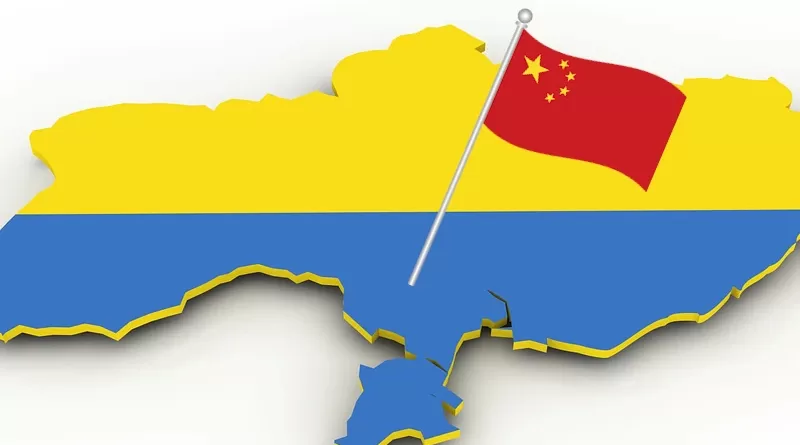US Watches With Caution As China Sends Peace Envoy To Ukraine
By VOA
By Nike Ching
In just a few months, U.S. officials have pivoted from publicly warning Beijing not to provide material support for Russia’s war in Ukraine to acknowledging there is a role for China to play in brokering peace talks.
On February 24, the day that China unveiled its 12-point peace proposal, Blinken voiced skepticism during remarks to the United Nations Security Council Ministerial Meeting on Ukraine.
“No member of this council should call for peace while supporting Russia’s war on Ukraine and on the U.N. Charter,” the top U.S. diplomat said one year after Russia invaded Ukraine.
By May 3, Blinken publicly acknowledged that it’s possible China would have a “very beneficial” role to play in peace talks.
Analysts and former American officials told VOA the shift in U.S. tone is partly a response to Washington’s European allies, who view Chinese President Xi Jinping as the only possible leader who can influence Russian President Vladimir Putin’s thinking about the war in Ukraine.
China has since announced it will send a peace envoy to Ukraine, although some remain skeptical that Beijing can be neutral.
China’s special envoy for Eurasian affairs, Li Hui, is expected to travel to Ukraine and other nations in a bid to bring a cease-fire and a diplomatic resolution to the war.
Li, a fluent Russian speaker, was Beijing’s former envoy to Russia from 2009 to 2019 and was among a few people awarded the Medal of Friendship by Putin.
When asked by VOA if the U.S. thinks China can be bias-free in mediating an end to Russia’s invasion in Ukraine, a State Department spokesperson said, “When it comes to diplomacy, nothing about Ukraine without Ukraine. The other key part of this is obviously Russia. The Kremlin has yet to demonstrate any meaningful interest in ending this war; quite the opposite.”
“No, China cannot be bias-free. China is clearly supportive of President Putin,” said Ambassador William Taylor, vice president for Europe and Russia at the Washington-based U.S. Institute of Peace. “So, it cannot present itself as a neutral mediator.”
Taylor was charge d’affaires at the U.S. Embassy in Kyiv in 2019 and as the U.S. ambassador to Ukraine from 2006 to 2009.
As U.S. President Joe Biden’s administration is reported to be weighing whether to work with Beijing to seek a negotiated settlement in Ukraine, Taylor told VOA, “The key caution is to be sure that any conversation with the Chinese about the Russian war on Ukraine has the Ukrainians as participants.”
“The Chinese as a mediator are not terribly forceful,” said Dennis Wilder, an assistant professor of Asian studies at Georgetown University, who from 2009 to 2015 was senior editor of the U.S. President’s Daily Brief, a summary of intelligence from across the government.
“If people are expecting the Chinese to come up with the creative solution, they’ll be disappointed. That’s not the way China operates. If people are looking for China to offer its good offices, China is pretty good at that. But the Chinese very rarely come up with the solution,” Wilder told VOA.
Last Wednesday, when asked by The Washington Post about working with China to achieve a stable outcome in Ukraine and China’s offer to mediate an end to the war, Secretary of State Antony Blinken struck a warmer tone.
“It’s certainly possible that China would have a role to play in that effort, and that could be very beneficial,” he said.
Experts say those remarks reflect the European Union’s belief that there has been some progress in encouraging Xi to oppose the use of nuclear weapons in Ukraine and to support Ukrainian territorial integrity and sovereignty. They hope China will do more going forward.
“While agreeing with the U.S. that it is necessary to warn Beijing against supplying lethal aid to Russia, at the same time they want to urge China to use its leverage over Moscow to bring an end to the war,” said Bonnie Glaser, managing director of the Indo-Pacific program at the German Marshall Fund of the United States.
Others, including former Assistant Secretary for Europe Philip Reeker, who now heads the Global Europe Program at the Wilson Center, believes “working together to help end Putin’s disastrous adventure would give Washington and Beijing an opportunity for engagement that could help in their own strained bilateral relations.”
The debate on whether Washington could work with Beijing in achieving a negotiated settlement in Ukraine came as the White House said Washington and Beijing are discussing a potential trip to China by U.S. Treasury Secretary Janet Yellen and Commerce Secretary Gina Raimondo. Blinken also said he was hopeful to reschedule a visit to China this year

